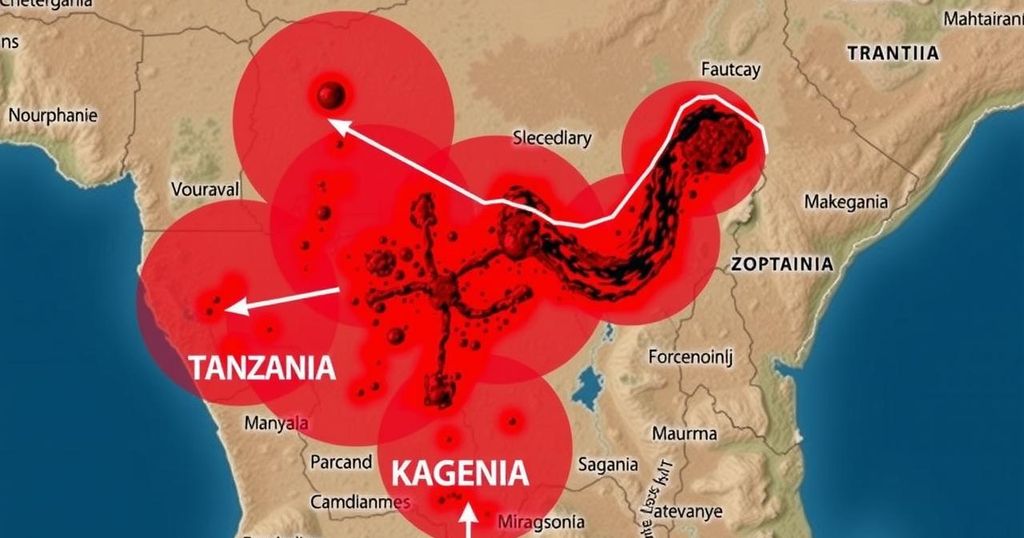WHO Warns of Suspected Marburg Outbreak in Tanzania’s Kagera Region

The WHO has warned of a suspected Marburg virus outbreak in Kagera, north-west Tanzania, with at least eight deaths and nine suspected cases reported. The organization anticipates more cases as health monitoring improves while emphasizing the high risk of spread within the region. Despite the local situation, the WHO has assessed the international risk as low and does not recommend travel restrictions at this time.
The World Health Organization (WHO) has issued a warning regarding a suspected Marburg virus outbreak in the Kagera region of north-west Tanzania, where at least eight fatalities have been linked to the disease. Recent reports have identified nine suspected cases of Marburg within the last five days. WHO Director-General Dr. Tedros Adhanom Ghebreyesus has indicated that additional cases are anticipated as health surveillance efforts increase in the area. Symptoms of Marburg infection are similar to those of Ebola, including fever, muscle pain, gastrointestinal distress, and severe hemorrhaging.
This latest outbreak follows Tanzania’s initial encounter with the Marburg virus in March 2023, which resulted in approximately six deaths in the Bukoba district and persisted for nearly two months. Although local authorities have not yet officially confirmed the new outbreak, WHO has begun monitoring identified patients, including healthcare personnel, and has dispatched rapid response teams to mitigate the spread of the virus. The organization has determined that the likelihood of the virus propagating within the region is “high” due to Kagera’s status as a transit hub connecting to the Democratic Republic of the Congo, Uganda, Burundi, and Rwanda. Dr. Tedros has advised against imposing travel or trade restrictions with Tanzania for the time being.
In a broader context, WHO has assessed the global risk of spreading the Marburg virus as “low” at this stage. The virus, which has a fatality rate averaging around 50 percent, spreads to humans primarily from fruit bats and through contact with the bodily fluids of infected individuals. Presently, there are no specific vaccines or treatments available for the virus, though research trials are underway to develop effective intervention strategies.
The Marburg virus is an infectious disease that presents similarly to Ebola and is known for causing severe health complications, often leading to high mortality rates. Transmission typically occurs through contact with infected individuals’ bodily fluids or from fruit bats to humans. The recent warnings from the WHO highlight the urgent need for heightened disease surveillance and response protocols, particularly in regions identified as high-risk due to frequent cross-border interactions. Previous outbreaks have demonstrated the virus’s capacity for rapid spread and significant human impact, underscoring the critical need for preventive measures and treatments that are not yet established.
In summary, the WHO has raised concerns about a suspected Marburg virus outbreak in Kagera, Tanzania, with eight reported deaths and new cases emerging. Enhanced surveillance and response efforts are being implemented to address the situation, amid a backdrop of previous outbreaks in the region. While the current global risk remains assessed as low, the potential for cross-border transmission necessitates vigilance and preparedness in health systems.
Original Source: www.bbc.com








